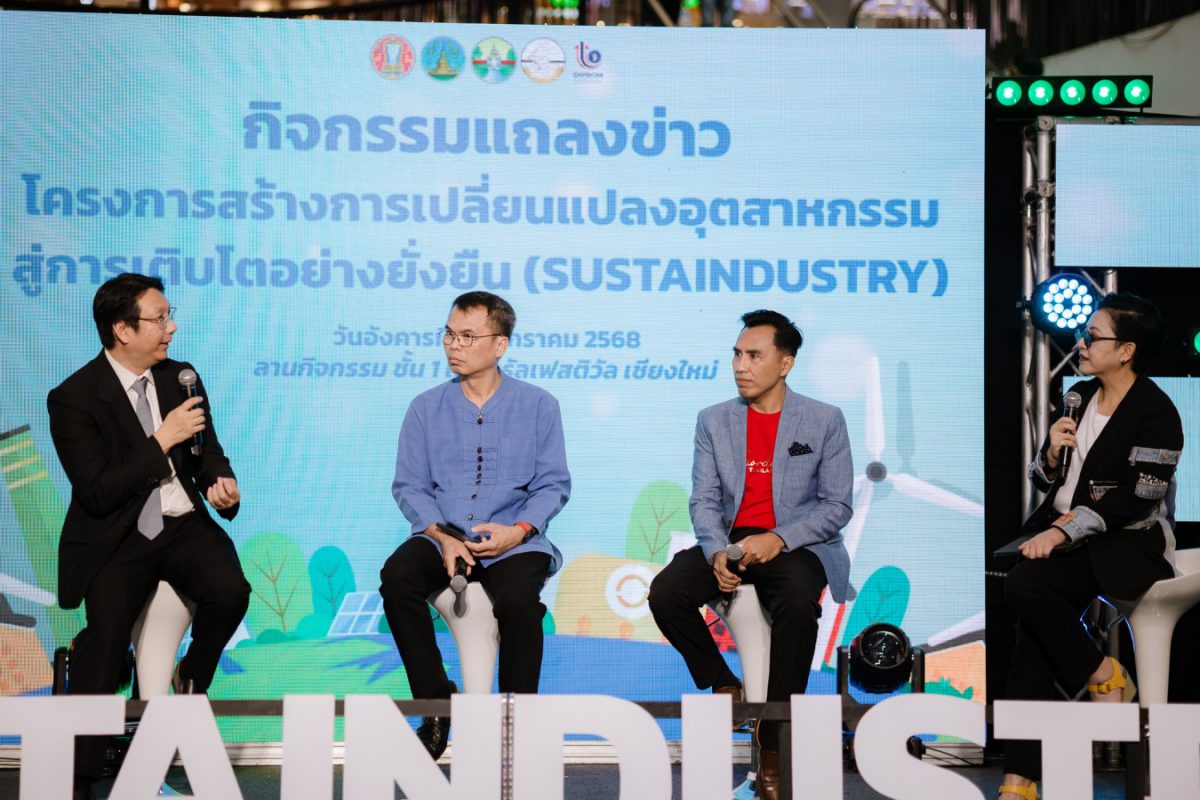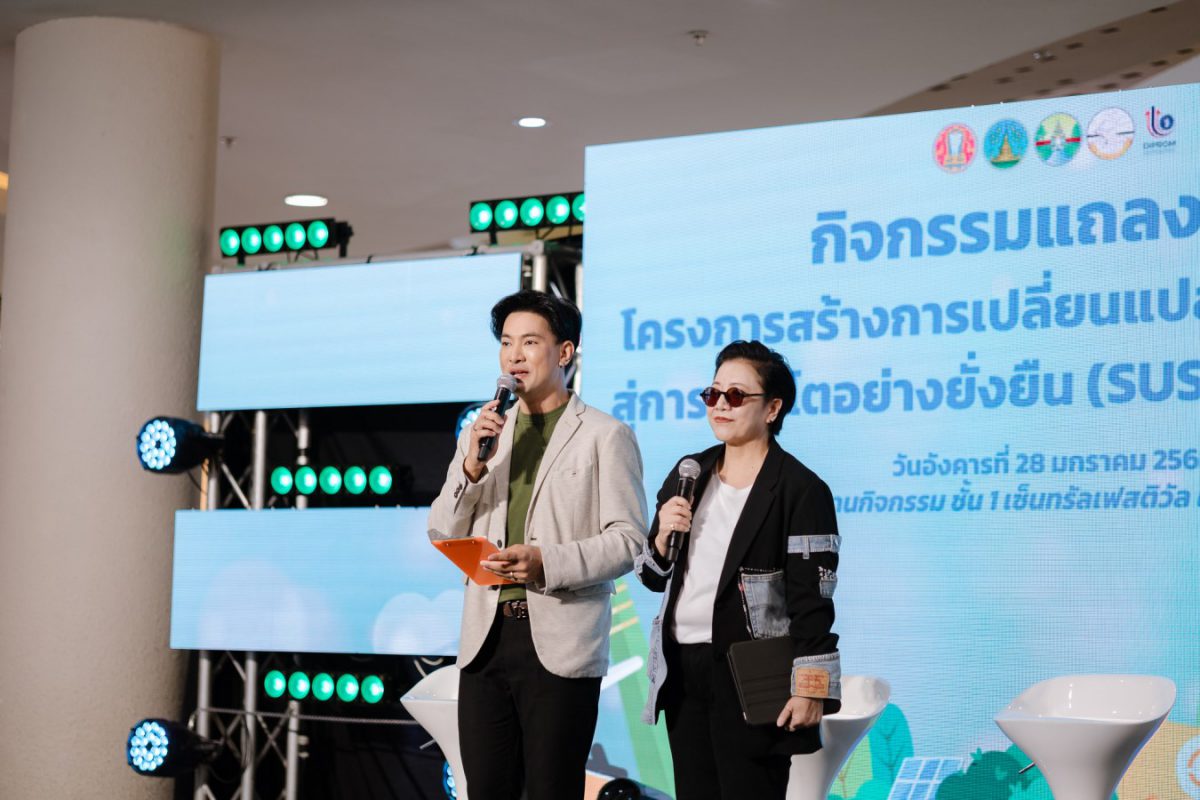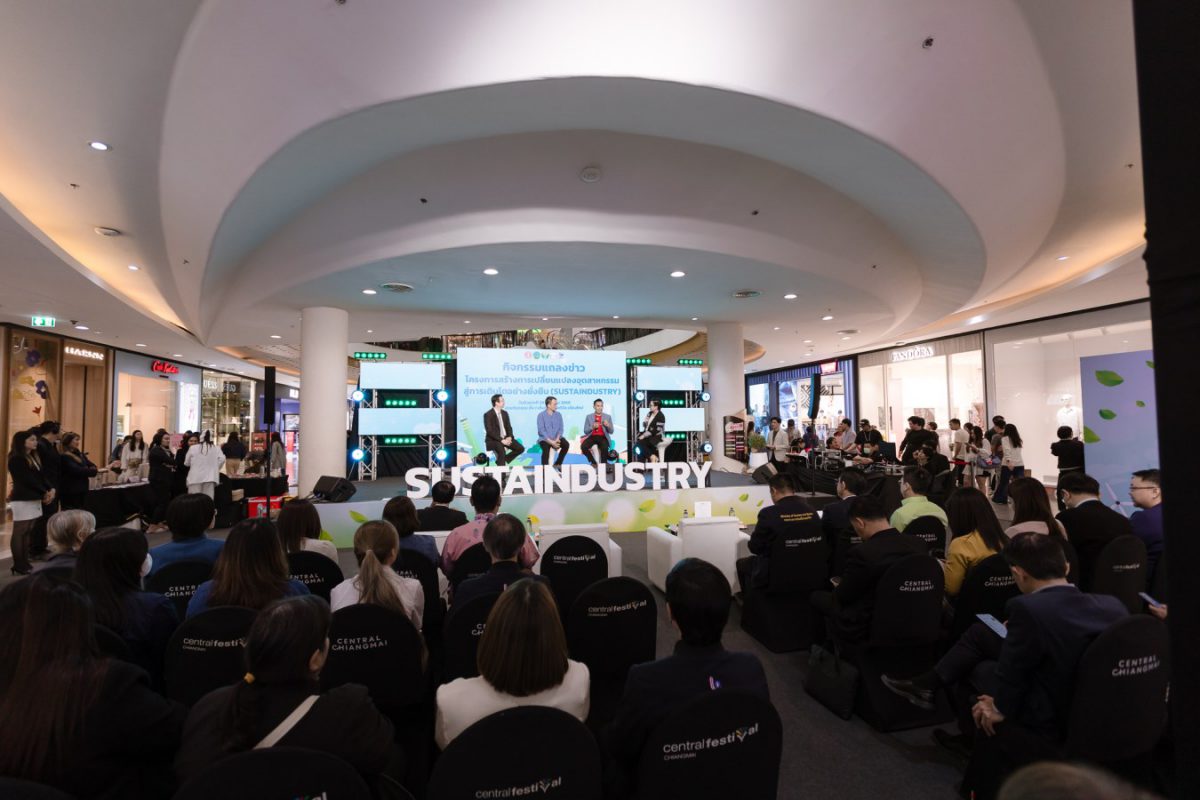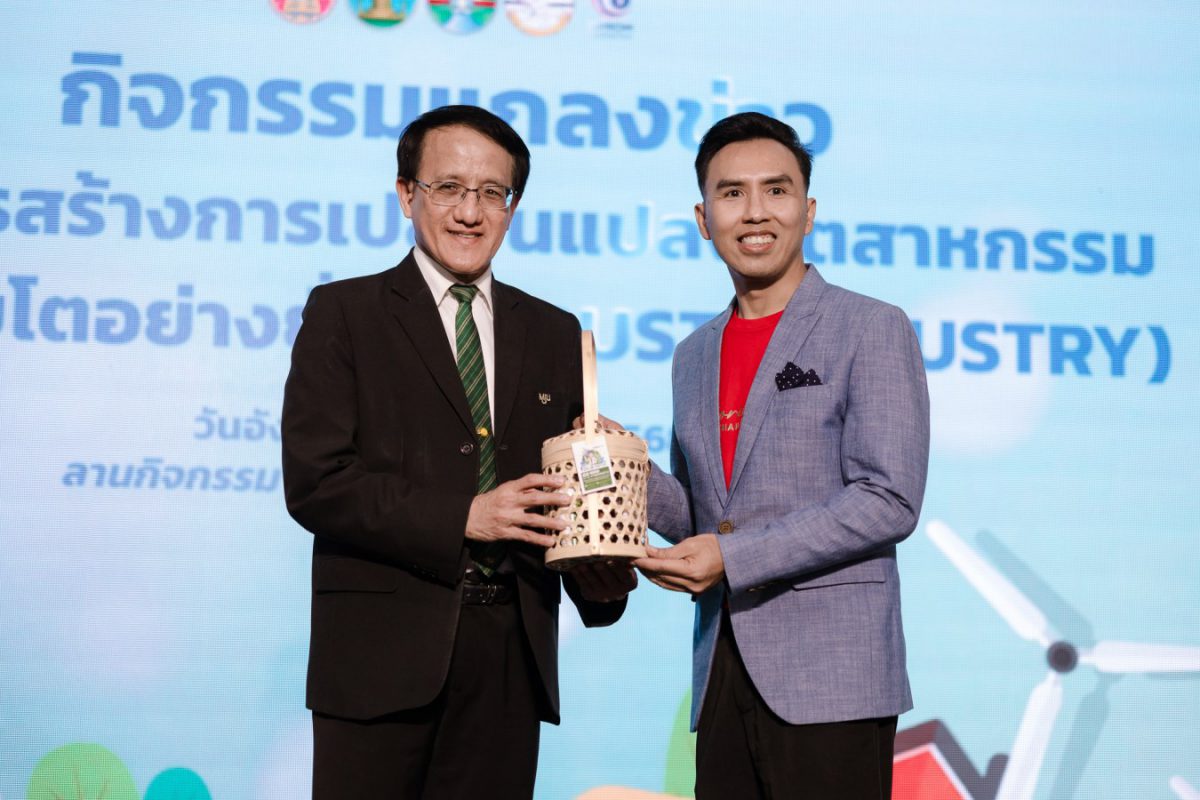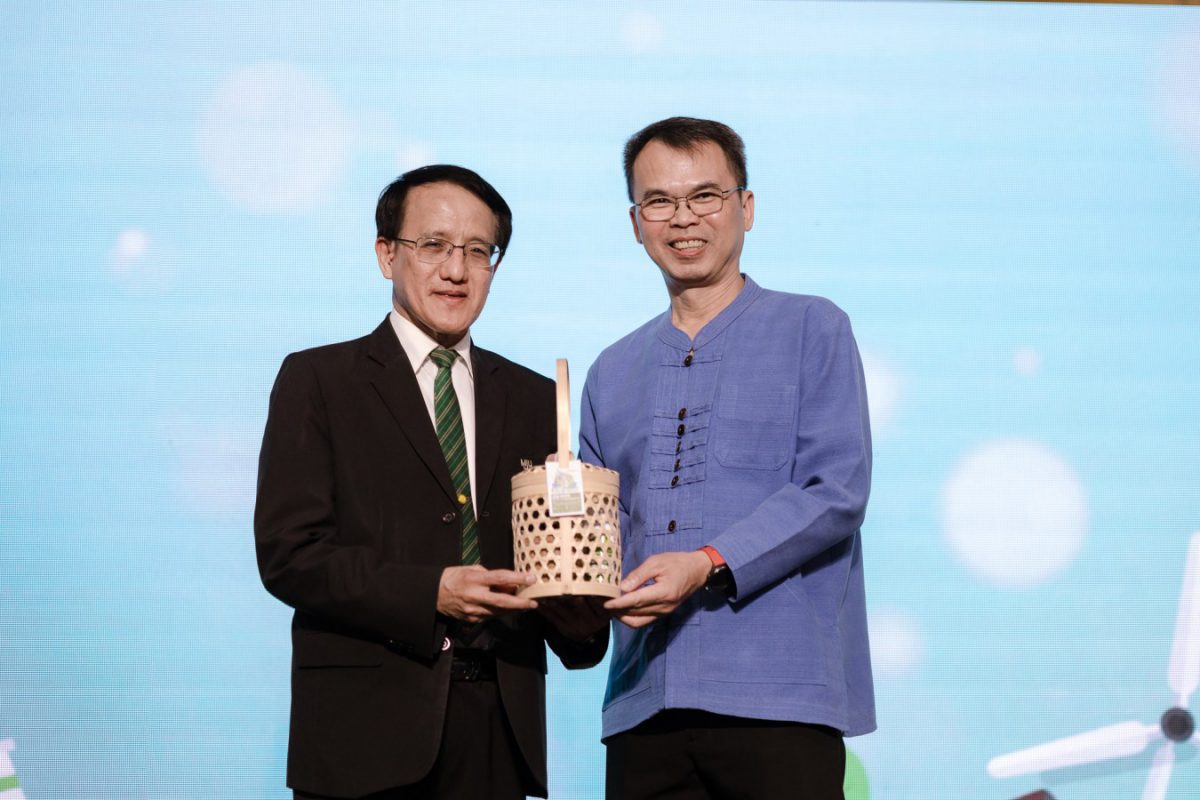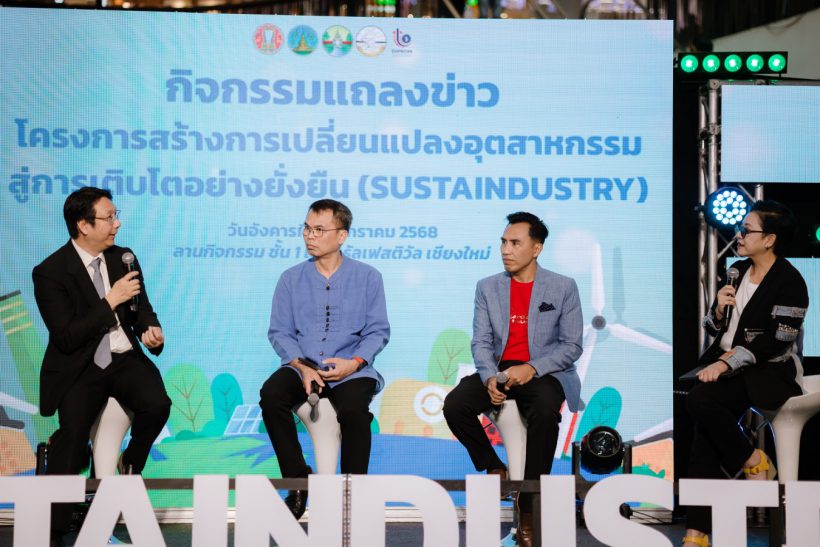On Tuesday, January 28, 2025, the Agricultural and Food Technology Science Park, led by Dr. Kal Kalyanamitra, Director, and Dr. Phanomporn Chalermwan, Deputy Director, along with park staff, attended the press conference to launch the “Industrial Transformation for Sustainable Growth (SUSTAINDUSTRY) Project” at the activity area on the first floor of Central Festival Chiang Mai.
Mr. Weeraphong Ritrod, Deputy Governor of Chiang Mai Province, presided over the press conference to launch the “Industrial Transformation for Sustainable Growth (SUSTAINDUSTRY) Project.” He was also joined by Mr. Sittirong Rungniang, Director of the Industrial Promotion Center Region 1, Associate Professor Dr. Kriangsak Sri-Ngernyuang, Vice President of Maejo University, and Associate Professor Dr. Chaiyot Samritsakul, Vice President of Maejo University. They also participated in a discussion on “The Role of Driving Industrial Transformation.” Towards Sustainable Growth”
Associate Professor Dr. Chaiyos Samritsakul, Vice President of Maejo University, revealed that as a university in the Upper Northern Region 1 cluster (Chiang Mai, Mae Hong Son, Lamphun, and Lampang), we are committed to supporting and developing policies to transform industries towards sustainable growth (SUSTAINDUSTRY) with clear guidelines and operations. The university promotes the development of technologies that reduce resource depletion, pollution emissions, and address environmental issues by supporting startups and SMEs to adopt business models that support sustainable growth.
Furthermore, the 13th National Economic and Social Development Plan (2023-2027), Goal 10, “Thailand has a circular economy (Climate Economy) and a low-carbon society,” focuses on industrial and service development, technology development, innovation, and support mechanisms, generating net income for communities, local governments, and farmers, restoring natural resources and increasing resource efficiency, and adapting economic behavior and livelihoods to a new, sustainable way of life. According to the principles of circular economy and low carbon society, as well as the goals and guidelines for the development of the northern region (2023-2027) that set the direction for the development of the region in 4 important areas (4C), especially Creative, developing a high-value creative economy into creative products and services based on production and consumption that take into account the impact on the environment, and Clean, developing on the basis of sustainable growth of environmental conservation, maintaining city cleanliness, and using clean energy, focusing on preventing and solving smog problems, developing a community environmental management system based on economic principles.
